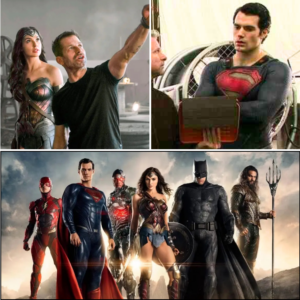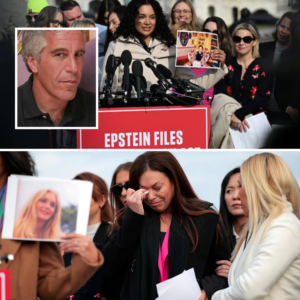In the pantheon of mafia films, Donnie Brasco (1997), directed by Mike Newell, stands out not for its glamour or explosive violence but for its raw, emotional exploration of human relationships caught in the crosshairs of crime and duty. At its heart are two stellar performances: Johnny Depp as Joseph D. Pistone, alias Donnie Brasco, an FBI agent infiltrating the Bonanno crime family, and Al Pacino as Benjamin “Lefty” Ruggiero, a weary, low-level mobster who takes Donnie under his wing. Their on-screen chemistry forms the emotional core of the film, weaving a narrative that is as much about loyalty and betrayal as it is about the psychological toll of living a double life. This article delves into the brilliance of their performances, the film’s portrayal of undercover work, and why Donnie Brasco remains a timeless masterpiece.
The Setup: A True Story of Infiltration
Donnie Brasco is based on the real-life experiences of FBI agent Joseph D. Pistone, who spent six years infiltrating the Bonanno crime family in New York City during the late 1970s. Posing as Donnie Brasco, a jewel thief from Florida, Pistone gained the trust of the mafia, gathering evidence that led to over 200 indictments and 100 convictions. The film captures this high-stakes mission, focusing on Pistone’s relationship with Lefty Ruggiero, a seasoned but struggling mobster. Unlike the glorified portrayals of mafia life in films like The Godfather or Goodfellas, Donnie Brasco strips away the romanticism, revealing a gritty world of small-time hustlers and broken dreams.

Johnny Depp’s portrayal of Pistone/Brasco is a study in duality. As an FBI agent, he is disciplined and committed, driven by a sense of duty to dismantle organized crime. But as Donnie Brasco, he must embody the swagger and cunning of a criminal, navigating a world where a single misstep could mean death. Depp masterfully captures this internal conflict, his expressive eyes conveying the growing tension between his mission and his personal attachments. His performance marks a pivotal moment in his career, transitioning from quirky, eccentric roles in films like Edward Scissorhands to a mature, nuanced portrayal of a man on the edge.
Al Pacino’s Lefty: A Tragic Figure
Opposite Depp, Al Pacino delivers one of his most understated and heartbreaking performances as Lefty Ruggiero. Known for larger-than-life roles like Michael Corleone in The Godfather or Tony Montana in Scarface, Pacino here plays against type. Lefty is no kingpin; he’s a low-level soldier, perpetually overlooked by his superiors, drowning in debt, and grappling with personal struggles, including his son’s drug addiction. Pacino imbues Lefty with a world-weary vulnerability, his slumped posture and gravelly voice conveying a man who has spent decades chasing respect in a world that offers him none.
Lefty’s relationship with Donnie is the emotional anchor of the film. He sees Donnie as a protégé, perhaps even a son, someone who might finally validate his years of loyalty to the mafia. Pacino’s scenes with Depp are electric, filled with moments of camaraderie, mentorship, and subtle tragedy. In one memorable scene, Lefty teaches Donnie the nuances of mafia etiquette, explaining phrases like “forget about it” with a mix of pride and resignation. These moments highlight Lefty’s desperate need for connection, making his eventual betrayal all the more devastating.

Screen Chemistry: A Father-Son Bond Amid Deception
The chemistry between Depp and Pacino is nothing short of extraordinary. Their interactions feel authentic, grounded in a mutual respect that transcends their characters’ circumstances. Lefty’s gruff affection for Donnie contrasts with Donnie’s guarded responses, as he struggles to maintain his cover while forming a genuine bond with his mentor. The film’s quiet moments—sharing a drink, discussing life, or navigating the mafia’s pecking order—are where this chemistry shines brightest. These scenes humanize both characters, blurring the lines between cop and criminal, friend and foe.
One of the film’s most poignant aspects is how Lefty treats Donnie like family, unaware that Donnie’s true allegiance lies with the FBI. This dynamic creates a moral quandary for Donnie, who begins to see Lefty not as a target but as a flawed, human figure deserving of empathy. Depp’s performance captures this internal struggle, his face often betraying flickers of guilt as he records conversations or reports back to his handlers. The audience is drawn into this conflict, rooting for Donnie’s success while dreading the inevitable fallout for Lefty.
The Psychological Toll of Undercover Work
Donnie Brasco excels in depicting the psychological strain of undercover work. Pistone’s double life takes a heavy toll, not only on him but also on his family. His wife, Maggie (played by Anne Heche), pleads for him to come home, noticing how his undercover persona is consuming his identity. Scenes of Pistone slipping into mafia mannerisms at home—snapping at his wife or adopting a tougher demeanor—illustrate how deeply he has internalized his role as Donnie Brasco. The film underscores the isolation of undercover work, where trust is a luxury and every relationship is a potential liability.

For Pistone, the greatest conflict lies in his loyalty. As an FBI agent, his duty is clear: gather evidence, protect the public, and bring criminals to justice. But his growing affection for Lefty complicates this mission. Lefty’s trust in Donnie makes him vulnerable, and Donnie knows that his betrayal will likely lead to Lefty’s death. This tension reaches its peak in the film’s final act, when the FBI closes in, and Donnie must confront the consequences of his deception. Depp’s portrayal of this moment—torn between relief and remorse—is a testament to his ability to convey complex emotions without words.
Lefty’s Tragedy: Loyalty to a Fault
Pacino’s Lefty is a tragic figure, defined by his unwavering loyalty to the mafia despite its constant rejection. He brags about his 26 “hits” and 30 years of service, yet he remains a small-time player, scraping by while others climb the ranks. His bitterness is palpable, especially when Sonny Black (Michael Madsen) is promoted over him, reinforcing his sense of being undervalued. Pacino captures this mix of pride and despair, making Lefty both pitiable and compelling.
Lefty’s final scene is one of the film’s most heartbreaking. After Donnie’s true identity is revealed, Lefty receives a call summoning him to a meeting he knows he won’t survive. Pacino’s subtle performance—removing his jewelry, preparing for his fate with quiet resignation—speaks volumes about Lefty’s acceptance of the mafia’s brutal code. It’s a stark reminder of the cost of loyalty in a world that offers no mercy.
Why Donnie Brasco Endures
Donnie Brasco stands apart from other mafia films because it prioritizes character over spectacle. While it includes moments of violence and crime, its focus is on the human cost of living in two worlds. The film’s authenticity, drawn from Pistone’s real experiences, lends it a grounded quality that resonates with audiences. Depp and Pacino’s performances elevate the material, creating a dynamic that feels both intimate and universal.
The themes of loyalty, identity, and sacrifice remain relevant today, particularly in an era where personal and professional lives often blur. Donnie Brasco asks difficult questions: How far would you go to do your job? Can loyalty coexist with betrayal? These questions linger long after the credits roll, making the film a thought-provoking exploration of human nature.
A Timeless Classic
In the end, Donnie Brasco is more than a mafia movie; it’s a meditation on the complexities of human relationships under extreme circumstances. Johnny Depp and Al Pacino deliver performances that are both powerful and poignant, their chemistry anchoring a story that is as heartbreaking as it is thrilling. The film’s unflinching look at the psychological toll of undercover work, combined with its nuanced portrayal of loyalty and betrayal, ensures its place among the greats of the crime genre. For those who haven’t seen it—or for those due for a rewatch—Donnie Brasco offers a masterclass in acting and storytelling that continues to captivate.




